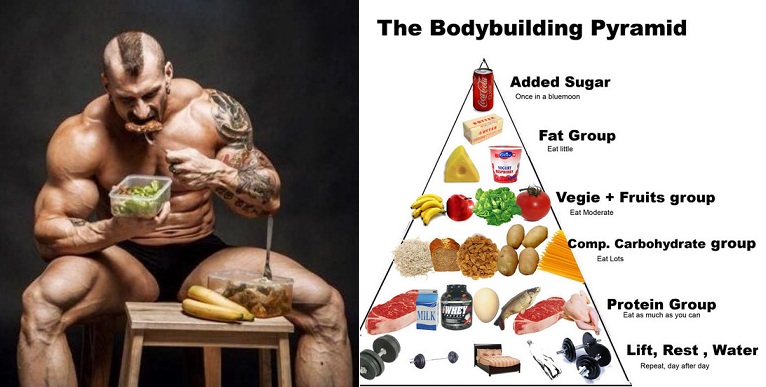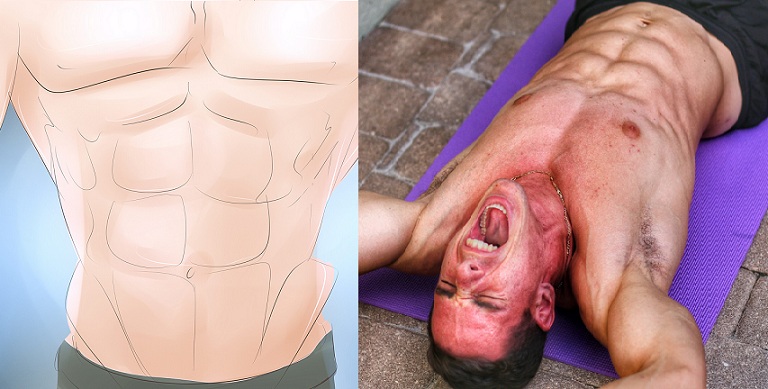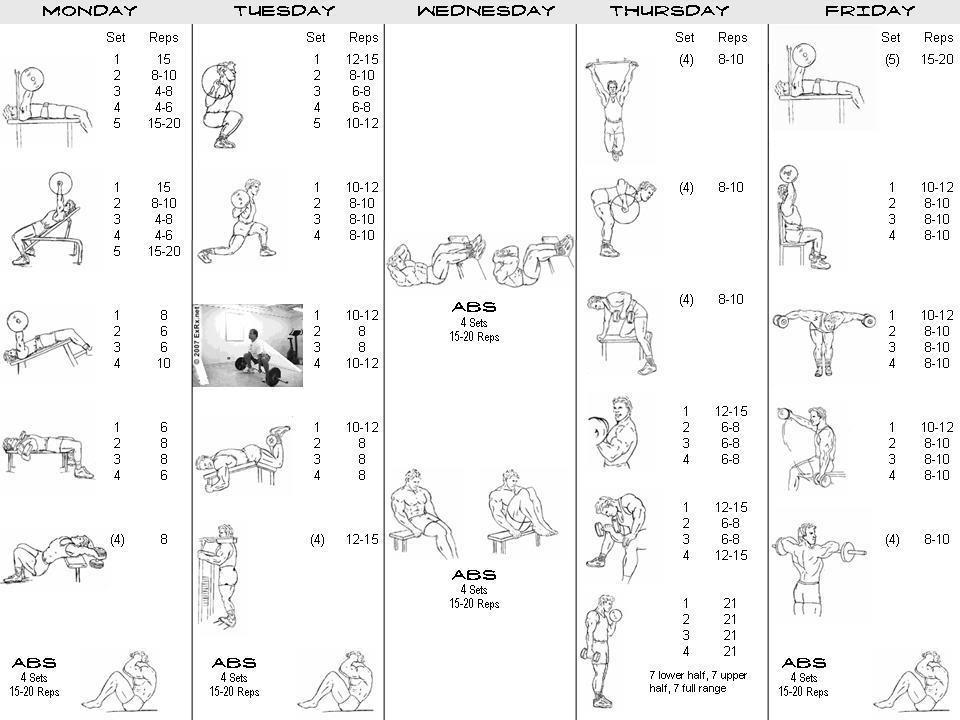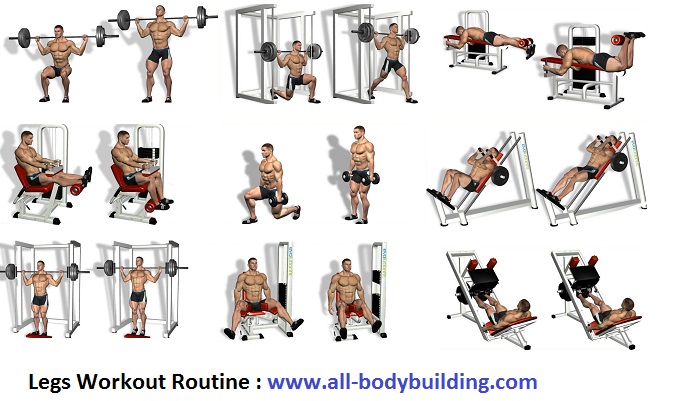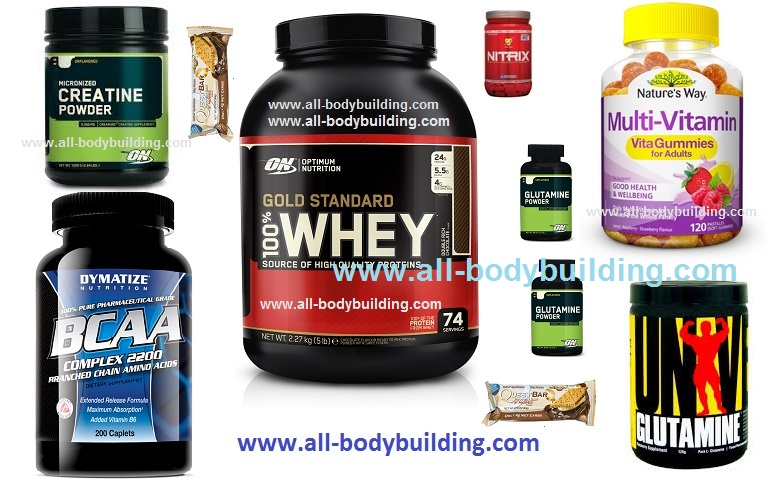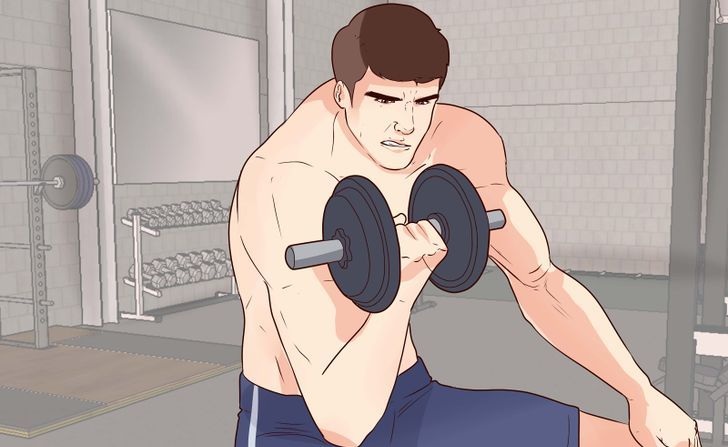Advertisement
This probably happens to you often: You just finished doing your work out and you’re really feeling the tightness in your muscles. You pat yourself on the back due to how much effort you put in for the day, and then you imagine how much of a better body you’ll have due to this.
There’s one thing you’re not keeping in mind though, and it’s important for an amazing workout: relaxed muscles! Not only do you have to keep your muscles stimulated in order for them to show growth, but you also need to give them plenty of rest and relaxation to repair themselves in order to become stronger!
In this article are 12 ways to relax your muscles:


Advertisement
1. Breathing
During the cool-down of your workout or before you head to sleep for the night, you should focus on your breathing. Take long deep breaths; 4 seconds to inhale and 4 seconds to exhale. As you’re exhaling, try and imagine all of the tightness and negative energy in your body escaping. Imagine all the muscles in your body easing up. Work your thoughts throughout your entire body, focusing on one group of muscles at a time.
During the cool-down of your workout or before you head to sleep for the night, you should focus on your breathing. Take long deep breaths; 4 seconds to inhale and 4 seconds to exhale. As you’re exhaling, try and imagine all of the tightness and negative energy in your body escaping. Imagine all the muscles in your body easing up. Work your thoughts throughout your entire body, focusing on one group of muscles at a time.
Breathing is a method that can improve your mind-body awareness and center your energy on easing up your muscles.
2. Stretching
Many people neglect this, but it’s important to include in a workout session because it will help with recovery and decrease DOMS. Stretch right after your workout, during your cool-down phase.
Many people neglect this, but it’s important to include in a workout session because it will help with recovery and decrease DOMS. Stretch right after your workout, during your cool-down phase.
As you’re stretching, hold each position for about 15-20 seconds until you feel a nice pull (while still remaining comfortable). If you feel any sharp pains, then you might have done a stretch incorrectly!
Also, as you stretch more, you’ll be improving your range of motion, which helps with your muscle fibers, which in turn helps you out when you’re doing weight lifting.
3. Sleeping
Doesn’t everybody love sleep? Not only is it essential to sleep to recover your mental state, but it also gives your muscles the necessary time to recover. Reducing your sleep time slows down your recovery rate, and it increases the amount of stress in your body, which causes your muscles to tense up.
Doesn’t everybody love sleep? Not only is it essential to sleep to recover your mental state, but it also gives your muscles the necessary time to recover. Reducing your sleep time slows down your recovery rate, and it increases the amount of stress in your body, which causes your muscles to tense up.
You should be sleeping at least 7 hours every day, and if you have the time, include a nap somewhere during your afternoon.
4. Hanging upside down
This may seem like a very strange suggestion, but by letting gravity help you out, you can have a deeper feeling of relaxation. After you finish your workout, try and find a bar that you can wrap your knees around. Then let your arms and body hang for one minute.
This may seem like a very strange suggestion, but by letting gravity help you out, you can have a deeper feeling of relaxation. After you finish your workout, try and find a bar that you can wrap your knees around. Then let your arms and body hang for one minute.
Focus your thoughts on releasing any tension you may be experiencing and let gravity work on y our body. Avoid staying in this position for a long time though, because excessive blood rushing to your head can cause various health risks!
5. Proper periodization
No matter how hard you’re working out, if you don’t plan your regimen correctly, you may not recover optimally and you may feel some tenseness in your muscles.
No matter how hard you’re working out, if you don’t plan your regimen correctly, you may not recover optimally and you may feel some tenseness in your muscles.
When you’re thinking of a program to use, make sure you have at least one day in your week to rest up completely, and make sure each of your muscle groups have two days to recover before you work on them again. Make sure that you watch out for synergistic muscles (like triceps & biceps) due to the fact that they work together on many different weight lifting exercises… you don’t want to overtrain those muscles!
One more thing is to schedule a week of rest every 3 months to give your body enough time to regenerate completely.
6. Massage
A massage can help you out a lot to relax your muscles. It’s a good idea to get a massage on your rest day or after a tough training day. Try and find a certified deep tissue masseuse and get yourself a full-body massage. Deep tissue massages are great because it can relax certain muscle fibers that you aren’t able to reach using regular methods such as stretching. When you’re being massage, try to focus on deep breathing to have an even better experience.
A massage can help you out a lot to relax your muscles. It’s a good idea to get a massage on your rest day or after a tough training day. Try and find a certified deep tissue masseuse and get yourself a full-body massage. Deep tissue massages are great because it can relax certain muscle fibers that you aren’t able to reach using regular methods such as stretching. When you’re being massage, try to focus on deep breathing to have an even better experience.
7. Bath, steam, and sauna
Each of these things will warm up your body and improve your blood circulation, which allows your body to carry more oxygen and nutrients to your muscles to heal.
Each of these things will warm up your body and improve your blood circulation, which allows your body to carry more oxygen and nutrients to your muscles to heal.
These are best right after you’re done with your workout. However, if you have an injury, it’s best that you put ice before using heat immediately after your workout, because it will decrease inflammation.
Keep yourself in the bath, steam, or sauna room for about 10-15 minutes… this is enough time to relax yourself, but not so long that you start to feel lethargic. If you want, you might also want to do some stretching, as your muscles will feel pretty warm and be in their most flexible condition.
8. Meditating
Meditation is amazing to relieve stress and for relaxing your muscles. If you do this before you go to sleep, you’ll be able to focus all of your mental thoughts and get your body ready for rest. Sit yourself in a dark and relaxing area, and sit with your legs crossed or lie down, and focus on deep breaths.
Meditation is amazing to relieve stress and for relaxing your muscles. If you do this before you go to sleep, you’ll be able to focus all of your mental thoughts and get your body ready for rest. Sit yourself in a dark and relaxing area, and sit with your legs crossed or lie down, and focus on deep breaths.
Let your mind relax and clear yourself of all your thoughts. Once your mind is free, imagine your muscles relaxing and let the energy flow out of them. Work your way throughout your body as you do this. Your muscles should have eased up and you should have a clam mind afterwards.
9. Green Tea
This method is very good because it’s easy to add to your daily schedule. Green tea has some antioxidants that can get rid of things that may have negative effects on your body. By decreasing the amount of damage caused to your muscles, you won’t require as much time to recover them.
This method is very good because it’s easy to add to your daily schedule. Green tea has some antioxidants that can get rid of things that may have negative effects on your body. By decreasing the amount of damage caused to your muscles, you won’t require as much time to recover them.
To completely benefit from green tea, try and drink two cups each day.
10. Acupuncture
This old Chinese method can not only heal diseases, but also help with muscle relaxation. A skilled acupuncturist will target your pressure points in order to relax your muscles. Whenever you’re feeling tight, you can go and get acupuncture… just be sure that you find a certified acupuncturist so that they know what they’re doing!
This old Chinese method can not only heal diseases, but also help with muscle relaxation. A skilled acupuncturist will target your pressure points in order to relax your muscles. Whenever you’re feeling tight, you can go and get acupuncture… just be sure that you find a certified acupuncturist so that they know what they’re doing!
11. Low-intensity cardio
After you finish your weight lifting workout, doing some easy cardio training is an effective way of loosening your body. This improves your blood circulation, improves your muscle recover, and gets rid of muscle stiffness that may have occurred from weight lifting.
After you finish your weight lifting workout, doing some easy cardio training is an effective way of loosening your body. This improves your blood circulation, improves your muscle recover, and gets rid of muscle stiffness that may have occurred from weight lifting.
12. Magnesium
Another easy method; this is a dietary supplement that aids in nerve signaling and muscle contraction & relaxation. You can either take them as supplements or eat foods that have magnesium, such as peanuts, spinach, almonds, and brown rice.
Another easy method; this is a dietary supplement that aids in nerve signaling and muscle contraction & relaxation. You can either take them as supplements or eat foods that have magnesium, such as peanuts, spinach, almonds, and brown rice.
Next time you have a nice hard workout, be sure to let your body relax after. By using the techniques that I described above as part of your regular routine, you’ll be sure that your muscles will heal in time and that you’ll feel amazing for your next workout.
